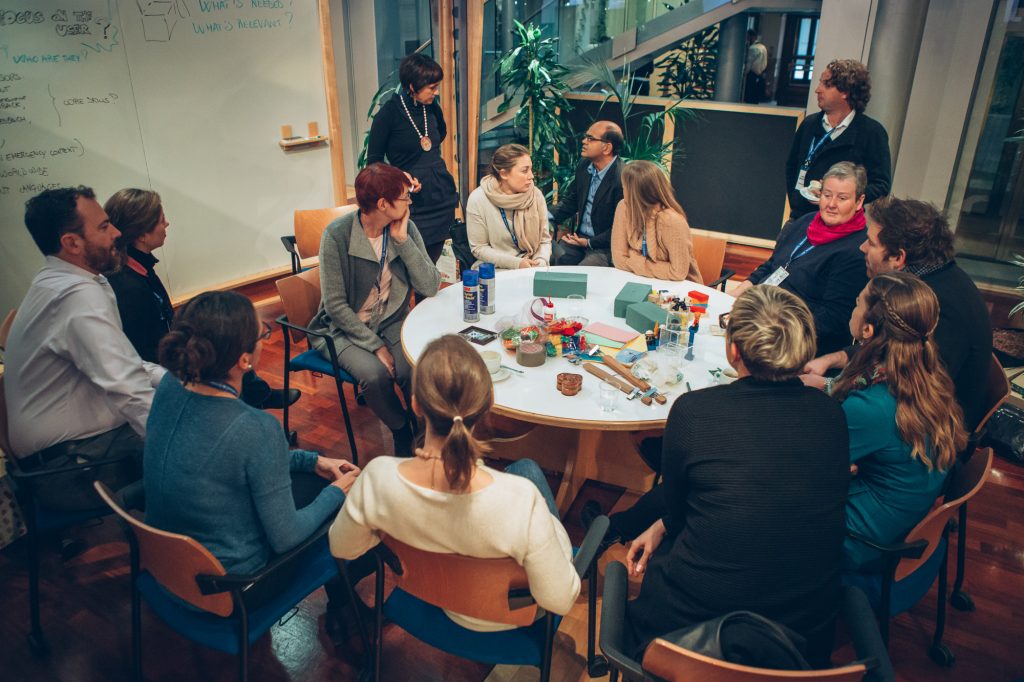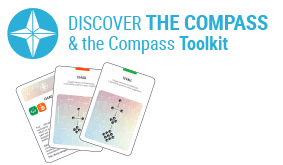Communities of Practice

Learning as a social system
Overview
Communities of Practices (CoPs) are groups of people who share a specific area of work, interest or passion, in a knowledge domain. CoPs share knowledge, learn from each other and interact regularly with peers in an enabling networked environment. Organisations use CoPs to share knowledge based on specific themes and areas, to break down organisational silos and stimulate interdisciplinary teamwork. Communities of practice are driven by the willing participation of their members (the principle of self-selection).
How to use it
- Sharing and learning about practices in which colleagues are interested.
- Encouraging professional development and accelerating learning.
- Strengthening connections between headquarters and field presences (and among field presences as well).
- Responding more rapidly to stakeholders’ needs and inquiries.
- Learning by doing (action learning).
- Identifying, documenting and sharing best practices.
- Collective problem-solving,
- Reducing duplication.
- Connecting islands of knowledge, fostering cross-functional and cross-divisional collaboration.
How to apply it
Time/Steps:
- Establish or identify a purpose (What problem am I trying to solve?)
- Identify your community (Who can be a part of it?)
- Understand the culture and behaviour.
- Develop the practice.
- Monitor and measure everything.
- Dale describes the stages in more detail in the following presentation:
http://www.slideshare.net/stephendale/cop-conversations-to-collaboration-presentation
Crucial questions to ask a CoP
Key questions on strategy:
- What change(s) in our work will take place in the next three to six months because of the CoP? What impact will it generate?
- Why is the community the best way of bringing about this change?
- What is the one thing that I need to do next week to facilitate or contribute to the community?
- Key questions on the specific knowledge domain(the shared area of enquiry and key issues):
- What specific topics do we want to address in the CoP in the next three to six months?
- Why are these topics relevant to our organisation?
- What kind of influence do we want to have on our organisation?
- Who will assume leadership in promoting our domain?
- Key community-related questions:
- Who will be members of the community in the next three to six months?
- How can ownership and management of the community be fostered?
- How often will the community meet? How will the members connect?
- How can the community balance the needs of the various members?
- How will the members deal with conflict?
- How will new members be introduced to the community?
- Key practice-related questions:
- How should we identify, create store, share and use knowledge?
- How should we evaluate the effectiveness of our CoP in the next three to six months?
- How should we ensure on-going connection between the members?
- How should we deal with conflicts between our own work and our community work?
- Key support-related question:
- What support do we need in order to be successful in achieving changes to our work through the CoP?
How to adapt it
These questions can also be used for interaction purposes between members of a community of practice:
- What challenges do you face?
- Are the challenges you face the same as mine or different?
- What resources do you have that can be shared?
- What ideas do you have about how to move ahead?
- How can we be mutually supportive?
Case study
Title:
Knowledge Sharing Communities of Practice for the ACIs
Activity:
The ILO Areas of Critical Importance
Contact:
Haley Horan, delta@itcilo.org
Description:
To tap into the full range of expertise and interest that is present at the ILO it is proposed to establish a knowledge sharing community of practice (CoP) for each of the Areas of Critical Importance (ACIs). Some of the objectives of the CoP are:
- to help members to address common challenges more effectively
- to promote a collaborative approach to problem solving
- to leverage the global knowledge of colleagues across the ILO
- to promote the capacity development of ILO staff and constituents
To achieve these objectives, the CoP will interact through an online workspace and face-to-face meetings.
Tips
- CoPs can be excellent enablers to break up the organisational and divisional boundaries.
- The strategic importance of the knowledge domain should have a legitimate place in the organisation.
- Involve experts in your CoP.
- Look for a good balance of activities which are relevant for your members.
- Involve a well-respected skilful and dedicated moderator.
- Highlight some of the incentives for participating in the CoP.
- Make sure members allocate time in their daily duties to participate in the CoP.
- Define from the outset how you are going to measure the success of the CoP.
Resources
Steve Dale, 2009. Communities of practice: turning conversations into collaboration. Presentation available at http://www.slideshare.net/stephendale/cop-conversations-to-collaboration-presentation.





